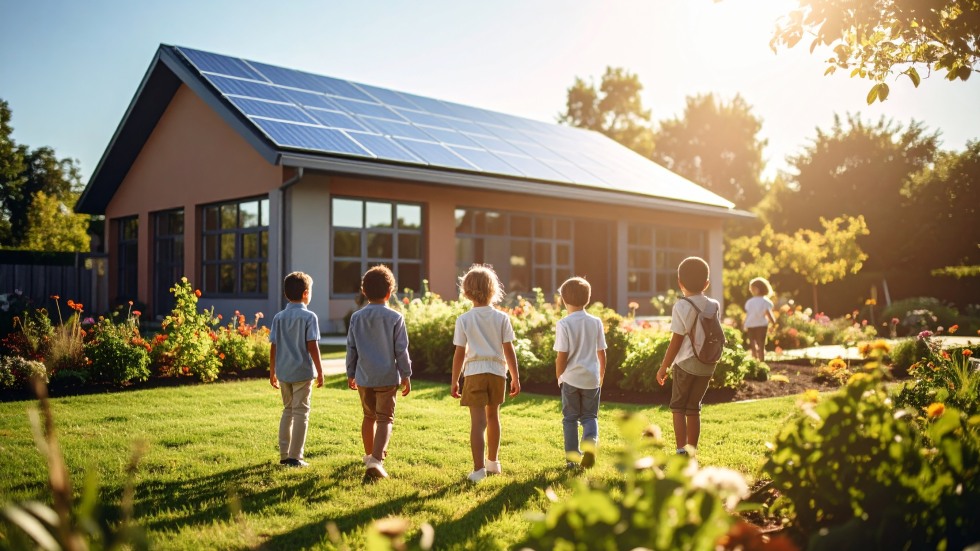The Sustainable Education Research Initiative (SustainableED), a new national research hub, is tackling the critical intersection of education systems and climate change. Spearheaded by Dr. Matthew Kraft, a Professor of Education and Economics and former public school teacher, the initiative sets out to transform how schools interact with our evolving climate.
"I am incredibly excited to launch SustainableED," says Professor Kraft. "We believe this initiative represents an important step towards understanding and leveraging the unique role education can play in confronting the climate crisis."
SustainableED recognizes that schools are uniquely positioned to be part of the solution to climate change, even as they remain vulnerable to its threats. Working alongside Project Director Grace Falken and Research Associate Sohil Malik, Professor Kraft and his team aim to generate evidence-based insights that support sustainable education systems nationwide.
Professor Kraft founded SustainableED with three central objectives:
- Conduct rigorous original research on the complex interrelationship between schools and our environment.
- Build connections between scholars, policymakers, practitioners, and industry leaders to cultivate interdisciplinary and cross-sector collaborations.
- Develop resources including datasets for researchers, actionable insights for policymakers, and pedagogical tools for practitioners.
Inaugural Paper Captures the Intersections of Education and Climate Change
SustainableED released a working paper titled “Education and Climate Change: Synthesizing the Evidence to Guide Future Research,” published through the Annenberg Institute Ed Working Paper series. The paper offers a comprehensive look at how education systems and climate change intersect across five key dimensions:
- Schools' Environmental Impact: Schools significantly contribute to carbon emissions through energy consumption, transportation, and food services. Professor Kraft highlights that states leading in electrifying buildings and school buses not only reduce emissions but also gain health and attendance benefits.
- Vulnerability to Extreme Weather: One out of every four public schools is located in the highest-risk category for at least one extreme weather event. Between 2011 and 2019, extreme weather was responsible for 83% of school closures lasting longer than a week.
- Health and Academic Outcomes: Air and industrial pollution, intensified by climate events, harm child health and development, directly impacting academic performance. These events also strain district budgets and contribute to mental health challenges for students and staff.
- Capacity for Climate Education: Only 37% of U.S. teachers feel they have the knowledge to teach sustainability-related topics, and American students lag behind international peers in environmental science. However, 29 states now offer career and technical education aligned with clean economy jobs, signaling a positive shift.
- Schools as Community Anchors and Change Agents: As cultural institutions and community hubs, schools hold immense potential to foster community climate resilience and education. Professor Kraft notes that students participating in environmental education programs can even influence their peers and parents’ perspectives on addressing climate change.
The Future of SustainableED
Professor Kraft plans to expand SustainableED’s research agenda, cultivate partnerships across sectors, and develop real-time tools for practitioners. He and his team actively invite feedback on their inaugural working paper and encourage collaboration across disciplines.
“We know that this is a huge and complex topic. It’s interdisciplinary,” Professor Kraft emphasizes. “We expect that all of us have some blind spots, and so we know that understanding this topic will take insights from a range of people and organizations and practitioners.”
By connecting education and climate science, SustainableED aims to support a new generation of research and practice, helping schools become climate-resilient, climate-smart, and ultimately, climate leaders.
To learn more, visit https://annenberg.brown.edu/sustainableED. Email sustainable-ed@brown.edu with any questions.
